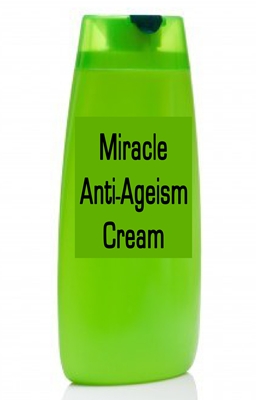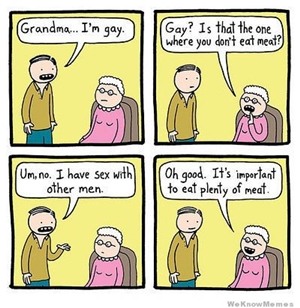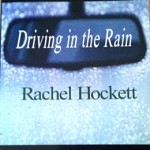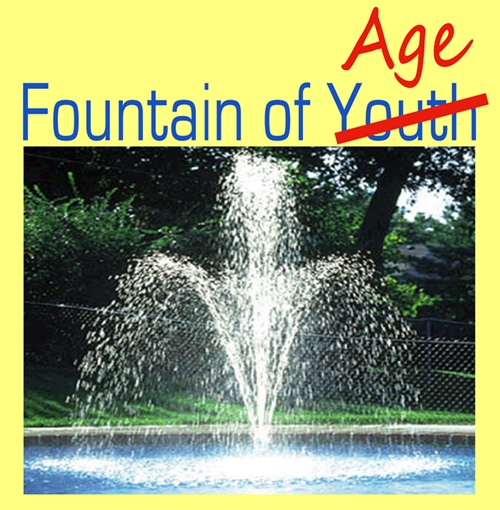 Of all the negative isms (too many to name), ageism may be the most insidious. It is so completely ingrained in our culture that we don’t even notice it . . . until we feel its sting.
Of all the negative isms (too many to name), ageism may be the most insidious. It is so completely ingrained in our culture that we don’t even notice it . . . until we feel its sting.
Here’s a funny thing about aging; when we are young, we don’t think about it much. Most young people feel immortal and invincible, and that is a good thing. If twenty-somethings spent their time worrying about old age and death, it would certainly put a damper on their now, and as we wise old people know, we only get this moment once. Our culture glorifies youth. Capitalists follow the money, and their money is on the young.
Aging is viewed as a negative. Who wants to get old? Getting old means getting closer to the big D, and no one wants to glorify that. In fact, we avoid frank talk of the big D (look, I can’t even bring myself to spell it out) at all costs. Our attitudes toward the unspoken D need a lot of work in this society.
We need to evolve to a point where we can embrace death (there, I said it) as a natural part of life, inevitable for all human and other living beings. Yes, death may be inevitable, but in the process of avoiding all honest discussion of it, there has emerged a kind of trickle-down negativity toward being old. And, contrary to popular ageist opinion, being old is not the same as being dead.
There are examples of ageism everywhere you look. Did you know, for example, that according to one author on aging, fewer than 2 percent of characters in prime-time television shows are 65 or older, and more than 70 percent of older men and women seen on television are portrayed in a disrespectful way and treated with discourtesy? Does this surprise you? Probably not. Does it make you angry? Probably not. Why? Because as a society we are so used to this characterization of our elders that most of us don’t think twice when we see it.
Now consider the following cartoon:

This image has been making the rounds on the pro-LGBT equality pages on Facebook, and I have not seen one single comment about how it makes its (very good) point—that sexual identity should be irrelevant—by highlighting the addlepated quality of the old woman.
Other examples of ageism in our culture:
• In a down economy, it is harder than ever for workers age 50 and over to find employment. In spite of its being illegal for employers to hire based on age, it’s a very difficult charge to prove. In 2011 the U.S. Equal Employment Opportunity Commission received 23,465 formal filings alleging age discrimination, a 35 percent increase over 2001.
• “[W]hile some voters may be reluctant to admit that they will not cast a ballot for a black or a woman, larger numbers are not at all shy about voicing reservations about voting for an older presidential candidate.”
• “Author Charla Krupp goes to great lengths to explain how people who are ‘aging’ now aren’t going to do it like their predecessors. They aren’t going to fade away, sail into the sunset or spend their days playing golf. And above all, they are not going to look old! Natural aging processes are termed ‘icky things’ and her examples are things like age spots, crow’s feet, gray hair, saggy boobs, etc. And, of course, every woman wants to look Y&H (younger and hipper) as opposed to looking like an OL (old lady).”
• Avon peddles something called “Anew Ultimate Age Repair Elixir.” And dozens of other anti-aging products abound.
• So-called “fun gifts” from the Spilsbury Catalog include one called “Racing Grannies” with walkers and wheelchairs: “The way these Racing Grannies zoom around the track, you’d think they’d be on the NASCAR circuit! Assemble your own Talladega Speedway and go head-to-head with these high-octane octogenarians in your own Granny 500, flooring it down the backstretch all the way to the checkered flag!”
Death is inevitable, and so is aging—if we are lucky enough to survive to be old. But ageism is not. I am convinced that, like any other inculcated behavior, ageism can be eradicated if we call attention to it and begin to change the paradigm.
There are those in my age bracket who advocate essentially “turning the other cheek” in the face of ageist behavior. I am all for carrying on, getting up, and keeping moving, and not letting the bastards, so to speak, grind us down. An “attitude adjustment” can make a world of difference in the moment, and no doubt there is value in persevering and accepting aging gracefully. But ageism permeates every layer of our society, in ways so subtle and chronic that we don’t always even recognize it for what it is.
Whether it is I or others who have felt its sting, fighting ageism will require more than just acknowledging it as a natural thing and acquiescing to its inevitability. Acceptance of the status quo would never have ended slavery, won the vote for women, or secured marriage equality in the District of Columbia and nine states. As with any other negative ism, ageism shouldn’t be swept under the rug with a smile and a promise to ignore it and just proceed.
The advice to keep singing and dancing is kind and encouraging, and may help me or you, on an instance-by-instance basis, but I am reminded that revolution doesn’t come from just accepting the status quo and two-stepping forward.
Personally, I’m an optimist, and I intend to stay cheerful, keep on keeping on, and make the most of my age and wisdom. But if we old people refuse to address the pervasive problem of ageism, we can never expect younger people to take it seriously. My first goal is to persuade my aging peers to acknowledge that ageism is real. I for one am not going gentle into that good night. Not without a fight, anyway.
And I can bet you, if I were to start a page against ageism on Facebook, it would only be the 45+ age group that joined up. That is the very reality I hope to help change: making it hip and in to love, respect, and honor our elders, by our aging peers and our young people alike.
_______________________________________________________________________________________________________

Learn more about Rachel’s new novel here —-> Driving in the Rain
Join Rachel on Facebook here —-> The Equality Mantra
An Anti-Ageism Elixir,



